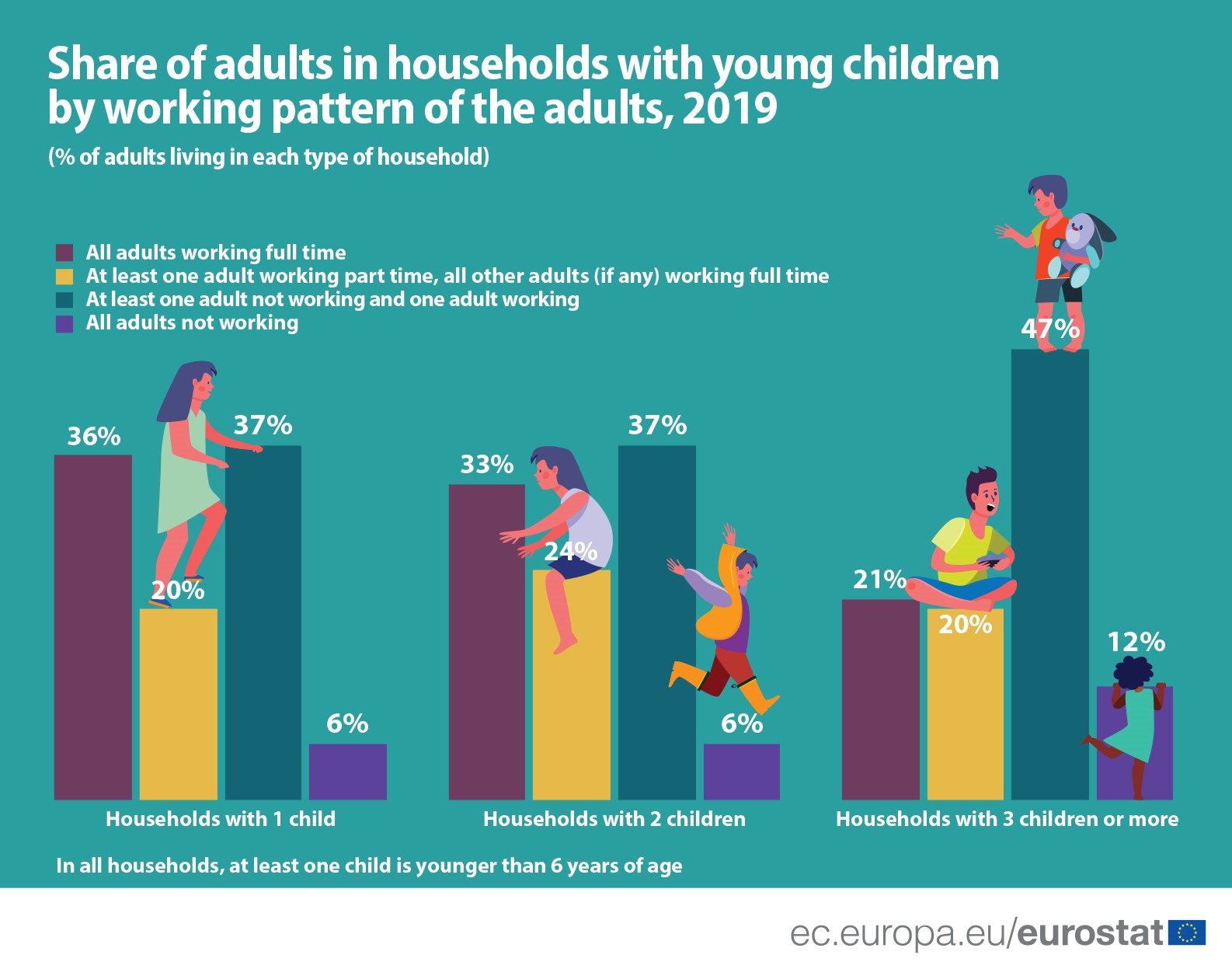Over recent weeks, in most countries, childcare facilities, schools and nurseries have closed due to the coronavirus pandemic. For many parents with a job, balancing work and family responsibilities is a big challenge now, especially for those employed with little children.
In the European Union (EU), in 2019, nearly 42 million adults lived in households with at least one child aged less than six years. Almost one third of these adults (32%) lived in households where all adults were working full time. Around one in five (22%) lived in households where all adults were working, with at least one of them working part time. Furthermore, two in five (39%) lived in households where at least one adult was not working and one adult was working, while 7% lived in households where none of the adult members were working.
More children, less full-time
Around 34 million adults in the EU lived in households with one or two children (the youngest being less than 6 years old). Whether there are one or two children in the household does not lead to a significant difference in the work pattern of the adults in that household.
Indeed, among the adults living in households with one child or two children, the vast majority (56% and 57% respectively) lived in households where all adults were working, 37% lived in households where at least one adult was not working and one adult was working, and 6% lived in households where no adult was working. What does differ slightly between the two household types (with one child or two children), is the share of adults living in households where all adult members worked full time (36% versus 33%).
Working full-time is less common among adults living in households with three or more children (21%). This group accounted for almost 8 million adults in the EU in 2019. The biggest share of them lived in households where at least one adult was working and one adult was not working (47%). On the other hand, 20% of them lived in households where all adults were working with at least one of them working part time. The remaining part of parents lived in households were none of the adult members were working (12%).








Leave a Reply